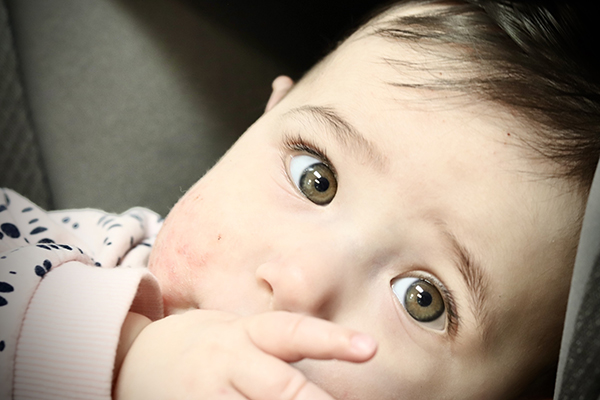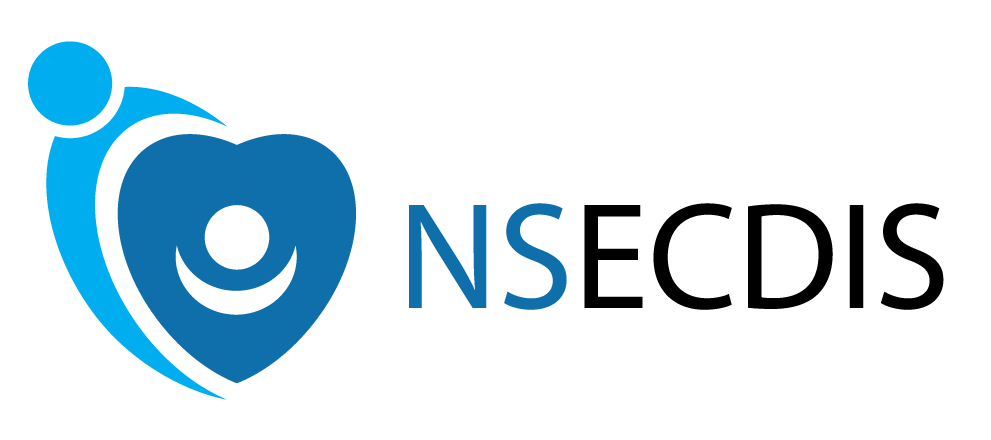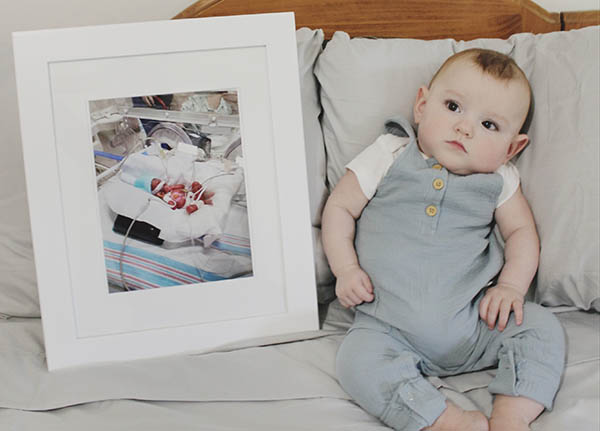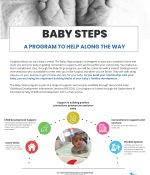Infant Development
What is Baby Steps?
If your baby has had a complicated start in the NICU or Family Newborn Care Unit, the Baby Steps program is designed to ease your transition home and assist you and your baby in getting connected to supports and services within your community.
Through the Baby Steps program, you will be connected with a trained Developmental Interventionist who is available to meet with you in the hospital and when you are home. They will walk along side you on your journey to get to know and care for your baby. As you build your relationship with your baby, you are laying the important building blocks of your baby’s healthy development.
The Baby Steps program is part of a range of supports and services available through Nova Scotia Early Childhood Development Intervention Services (NSECDIS). Our program is funded through the Department of Education & Early Childhood Development and is a free service.
Supports
What Services Does Baby Steps Provide?
Support in building positive connections between you and your baby.
Home Visits
Support for your baby within your home. (Weekly or less as needed)
Child Development Support
Monitoring and developmental milestones and sharing prevention strategies to support your child’s growth development
Connections to supports and services
For you and your baby within your community.
Flexible options
We follow your lead and will customize our supports and services to meet with individual needs of you and your baby
Eligibility
Who is Baby Steps For?
Infants born very premature
Infants born with medical/biological risk
(early developmental events impacting the central nervous system, genetic & chromosomal disorders, clinically significant congenital heart defects)
Infants who have experienced substance exposure in utero

Families can access the program prenatally and while still in hospital.
Benefits
How does Baby Steps help families?
Research has demonstrated two important factors in improving developmental outcomes:
- Infants who have stronger bonds with their parents have improved developmental outcomes
- Intervening as early possible makes a difference in child growth and development. It is the time where the brain is most likely to adapt and learn.
Parents who are supported at this critical time through relationship-based interventions such as the Newborn Behaviour Observation (NBO) system, are reported to feel less stress and maternal depressive symptoms (McManus, et. al., 2020), which in turn helps them build stronger relationships with their children. The Baby Steps program strives to extend support to families as early as possible.
Tools to Help
What is the Newborn Behavioral Observation tool (NBO)?
The Newborn Behavioral Observations (NBO) system™ is an infant-focused, family centered, relationship-based tool, designed to sensitize parents to their baby’s competencies and individuality, in order to foster positive parent-infant interactions and contribute to the development of a positive parent-infant relationship from the very beginning (Nugent, Keefer, Minear, Johnson. and Blanchard, 2007).
The NBO is strength-based and is primarily guided by the principle that the quality of early experiences drives brain development and functional outcomes. It describes the infant’s capacities in such a way that parents can begin to see their baby as a person, better appreciate their baby’s unique competencies and vulnerabilities, and learn to understand and respond to their baby, in a way that meets the baby’s unique developmental needs.
The NBO is an 18-item neurobehavioral relationship-based intervention that involves a shared observation of the infant with the parent and includes elicited maneuvers with the purpose of:
- Identifying infant and parent strengths
- Identifying infant neurobehaviours
- Interpreting these neurobehaviours in the context of the parent-infant interaction and infant self-regulation and intentions, with the goal of enhancing the parent-infant relationship
You can learn more about the NBO System in this linked article: Zero to Three and this website.
For more information on the Baby Steps Program or to refer an infant, please contact:
Program Coordinator: Denise Lowe DLowe@nsecdis.ca or call 902-354-5890


